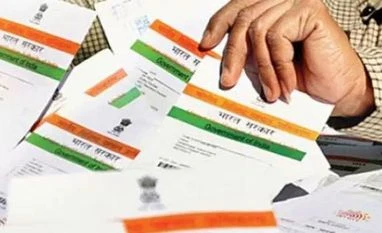The Supreme Court on Friday ruled that the Aadhaar card was not mandatory for filing income-tax (I-T) returns for 2017-18. But all Aadhaar cardholders must link the unique identity number with the permanent account number (PAN), it added.
The court did not go into the privacy issue as it has been referred to a Constitution Bench, which will rule on the validity of the scheme.
The order was passed by a Bench consisting of Justice A K Sikri and Justice Ashok Bhushan, at a special sitting during the ongoing summer vacation of the court. They had reserved the judgment on May 4 after hearing the arguments of Attorney General Mukul Rohatgi, senior counsel Arvind Datar, Salman Khurshid, and Shyam Divan.
Three petitioners had challenged the Constitutional validity of the new Section 139AA of the I-T Act, which had made it mandatory to have the Aadhaar card to file returns. The card had to be linked to the PAN card for doing so. Friday’s order did away with that requirement.
Those who have applied for the Aadhaar card will also benefit from the order. The ruling will not have a retrospective effect. The court also asked the government to consider a scheme to assuage concerns over leakage of personal data.
According to the petitioners, the Act made the unique identity scheme voluntary. The court had passed two interim orders in October 2015, stating the card was required to claim six welfare benefits such as foodgrain ration and cooking gas. The main case challenging the scheme is before another Bench.
The petitioners had argued that the new rule, introduced in the Finance Bill, ran counter to the Aadhaar Act by making linking the card to the PAN compulsory. Moreover, the unique identity number was necessary to apply for the PAN card and if they were not linked, the PAN would be rendered invalid, disabling a person from doing any business transactions, it was argued.
The Attorney General had defended the linking, arguing that the measure was to weed out fake numbers, save the government’s resources, and curb corruption and terrorism.
The case was brought by CPI leader Binoy Viswam, Magsaysay award winner Bezwada Wilson, and a retired army general, S G Vombatkere, who contended that as they were unwilling to part with their biometric data for an Aadhaar card, they could not file their tax returns.
According to Section 8(2) of the Aadhaar Act, the authority under the law shall “obtain the consent of an individual before collecting his identity information for the purposes of authentication in such manner as may be specified by regulations”. Section 57 also has an item that makes Aadhaar subject to procedure and obligation under Section 8, which refers to the individual’s consent.
The petitioners argued that Section 139AA of the I-T Act was inconsistent with the Aadhaar Act as it said that “nothing contained in this Act shall prevent the use of Aadhaar number for establishing the identity of an individual for any purpose, whether by the State or any body corporate or person, pursuant to any law, for the time being in force, or any contract to this effect”.
Identity crisis
- The Finance Act 2017 had made Aadhaar card mandatory for tax returns and PAN applications, beginning July 1
- For this, Section 139AA was inserted in the Income Tax Act
- In a debate over the Finance Bill, Finance Minister Arun Jaitley had said in Parliament, “In a situation where it has come to light that one citizen has up to five PAN cards, to avoid that, we have linked the PAN to Aadhaar”
- CPI leader Binoy Viswam, Magsaysay award winner Bezwada Wilson, and retired army general S G Vombatkere had challenged the validity of Section 139AA
- Petitioners had contended the Centre could not “belittle” the apex court’s 2015 order holding the unique identification number as voluntary
Unlock 30+ premium stories daily hand-picked by our editors, across devices on browser and app.
Pick your 5 favourite companies, get a daily email with all news updates on them.
Full access to our intuitive epaper - clip, save, share articles from any device; newspaper archives from 2006.
Preferential invites to Business Standard events.
Curated newsletters on markets, personal finance, policy & politics, start-ups, technology, and more.
)